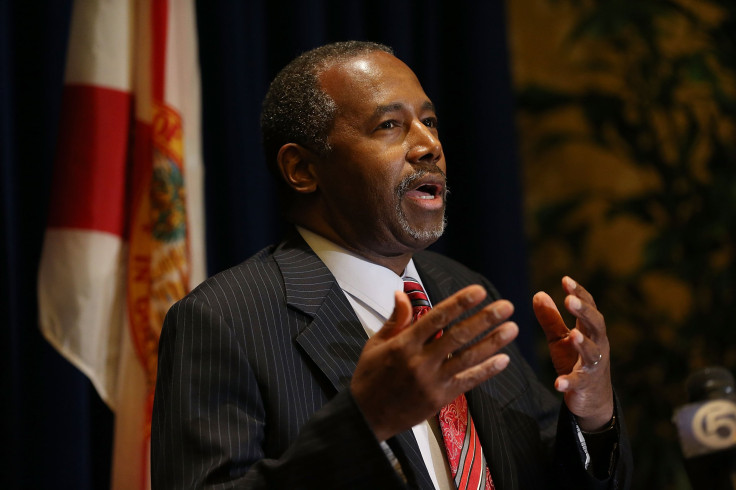Ben Carson Biography Controversy: Yale Anecdote Faces Renewed Scrutiny

Ben Carson’s time at Yale University faced renewed scrutiny Saturday after a Wall Street Journal report raised questions about the validity of an anecdote from the Republican presidential candidate's 2009 autobiography. Questions arose hours after a Politico report ostensibly disproved Carson’s claim that he had been offered a "full scholarship" to attend the U.S. Military Academy at West Point.
In the book, Carson recounted a story from his junior year at Yale. He claimed to have taken a psychology class called “Perceptions 301.” Carson wrote that the professor told students their final exams had been “burned,” and they would have to finish a new, more difficult test. Carson said he was the only student to complete the new exam, which was actually a test to determine the “most honest” student in the class. He purportedly was given a $10 bill for finishing the exam, and his photo was taken for Yale’s student newspaper.
But a Yale University librarian said the school never offered a class called “Perceptions 301” during Carson’s time there, the Journal reported. Moreover, no photo of Carson could be found in the Yale Daily News’ archives. The Carson campaign has denied any of the stories in the autobiography were falsified.
“There’s no facts saying they are not true. We are guilty until proven innocent,” campaign manager Barry Bennett told the Journal. “You have no reason to believe they are not true. There’s no evidence to point to the fact that they are even questionable.”
A Politico report Friday said Carson admitted that a story in his autobiography about getting a "full scholarship" to West Point was false. In the book, he wrote that he met with Gen. William Westmoreland -- the commander of U.S. forces in Vietnam -- in 1969, when Carson was 17 years old. Carson said he had dinner with the general, who offered him a scholarship. But a West Point representative said the U.S. Military Academy had no record of Carson ever applying. And since there is no tuition at West Point, there are no scholarships.
Carson’s campaign denies it admitted the "West Point scholarship" anecdote was fabricated. Carson attempted to clarify the situation in an interview with the New York Times.
“I don’t remember all the specific details,” he said. “It was, you know, an informal ‘with a record like yours, we could easily get you a scholarship to West Point.’”
Carson is currently one of two front-runners for the Republican nomination in the 2016 presidential race. A joint NBC/Wall Street Journal poll released just days before the Politico report gave Carson a 6-point lead over Donald Trump nationally.
© Copyright IBTimes 2025. All rights reserved.






















